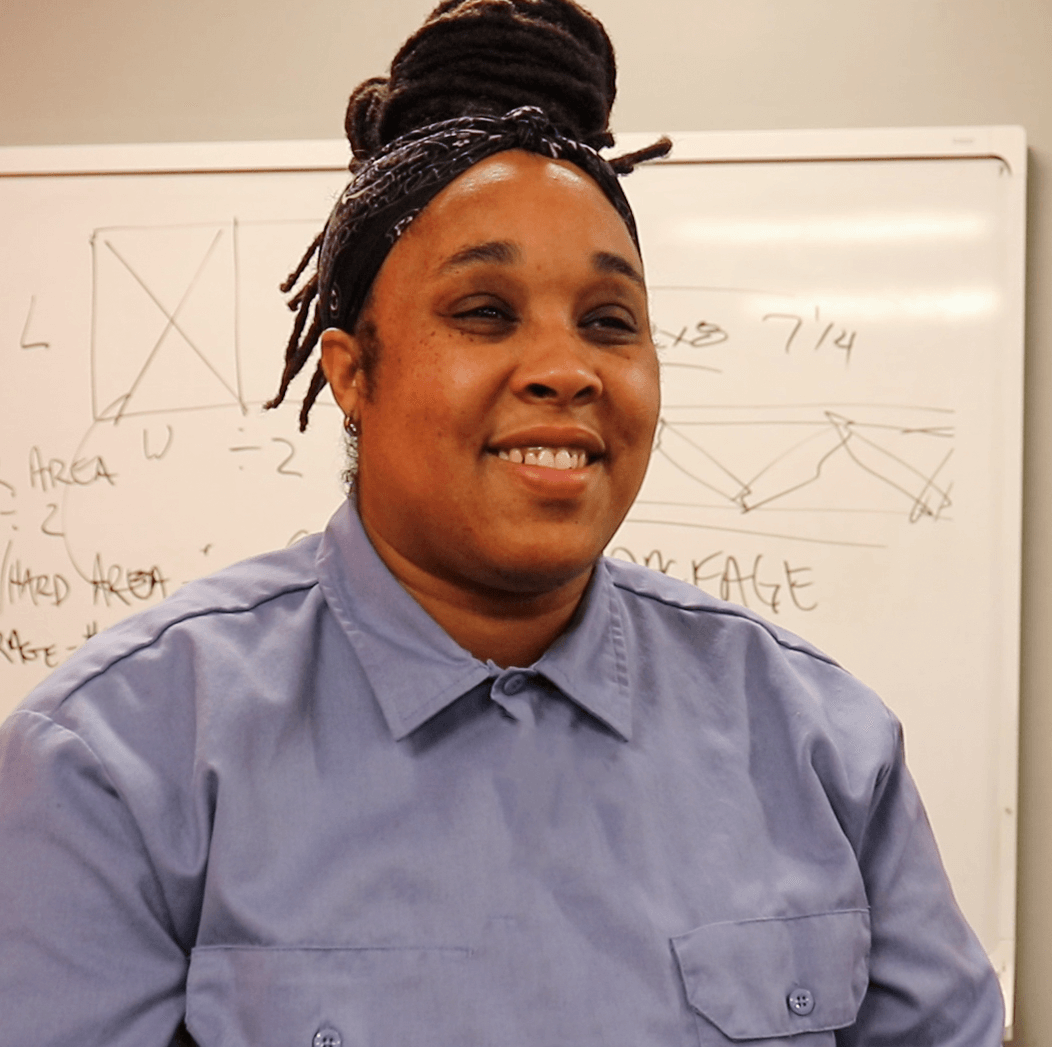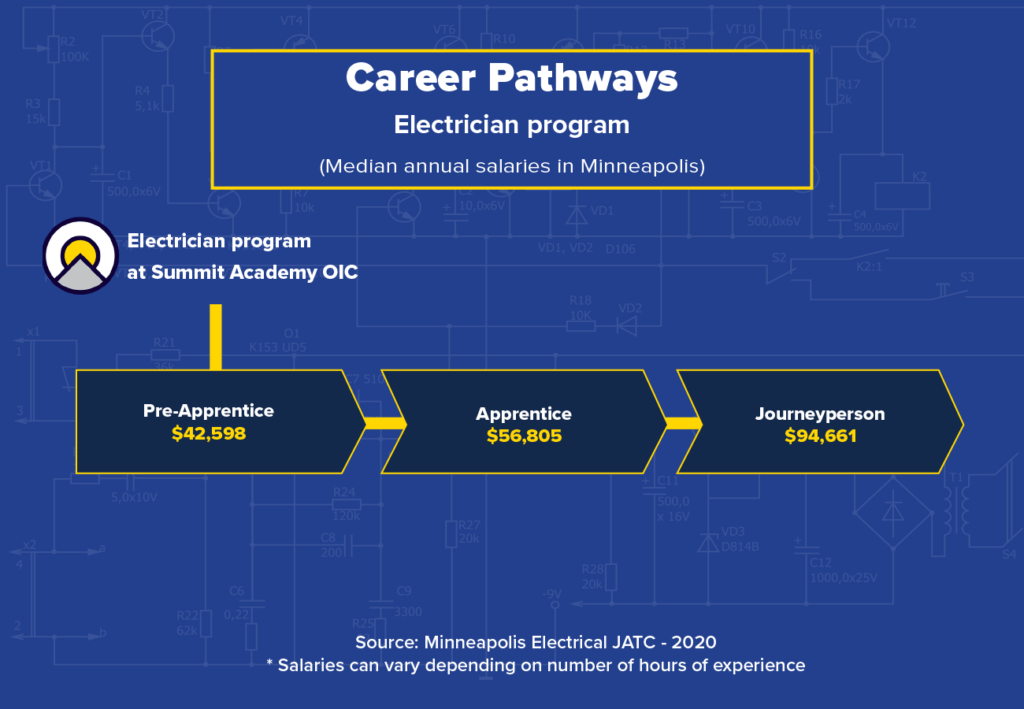Electrician
Construction
Our hands-on Electrician training will plug you directly into the most relevant techniques and practices for the construction industry. The Electrician specialty is designed to teach students pipe bending, electrical circuitry, residential and commercial wiring, blueprint reading, and other common Construction industry practices. The relationships formed with fellow students, industry mentors, and guest speakers provide an invaluable network of passionate, diverse electrician allies to call upon throughout your career.
Course Length
20 Weeks
Course Cost
No out-of-pocket training cost
Course Format
In-person
Average Starting Wage
$21.46/hr
What does an Electrician do?
An electrician is a tradesperson specializing in the electrical wiring of buildings, stationary machines, and related equipment. Electricians may be employed in the installation of new electrical components or the maintenance and repair of existing electrical infrastructure. Electricians install and maintain all of the electrical and power systems for homes, businesses, and factories. They install and maintain the wiring and control equipment through which electricity flows.
Electrician Essential Duties:
- Read blueprints and technical diagrams
- Install and maintain wiring, control, and lighting systems
- Inspect electrical components, such as transformers and circuit breakers
- Identify electrical problems with a variety of testing devices
- Repair or replace wiring, equipment, or fixtures using hand tools and power tools
- Follow state and local building regulations based on the National Electric Code
- Direct and train workers to install, maintain, or repair electrical wiring or equipment
You Will Learn
- Electrician Trade Terms
- Electrical Panel Terms
- Residential Wiring
- Commercial Wiring
- Pipe Bending
- Electrical Safety
- Electrical Theory
- Electrical Circuitry
- Hands-on Installation Electrician Training
- Print Reading
- Problem Solving
- Electrical Math
Weeks 1-10
Our Electrician training courses focus on skills necessary to become an entry-level electrician. Students work on a variety of items that include electricity and trade terms, pipe bending, panel terms, and electrical safety. The training ensures that students will have a solid foundation in electrical math and basic blueprint reading. Students will be able to identify the most important hand and power tools and learn how to use them safely. You will also be exposed to a variety of building materials and understand their applications.
Classes meet in-person, Monday–Friday from 8:30 a.m.–2:50 p.m.
This training has a prerequisite of previous completion of Algebra course with “C” grade or higher, as documented on high school or other transcript; or completion of the National Joint Apprenticeship and Training Committee (NJATC) for the Electrical Industry course, which is offered online.
Goals:
- Understand the foundational principles of Construction
- Gain familiarity with hand and power tools
- Gain confidence with personal development classes
Topics covered:
- Construction Safety
- Building Materials
- Blueprint Reading
- Building Materials
- Construction Mathematics
Weeks 11-20
Weeks 11-20 is where we build on the foundations you learned in Phase I. This part of the training is designed to challenge students with a higher degree of difficulty in electrician execution. You’ll work in pairs and small teams on residential and commercial wiring. You’ll gain practical experience with the entire wiring process, from problem-solving to evaluating, refinement, and execution. You’ll gain a deeper understanding of the electrical field and begin to see the challenges you are likely to encounter when working on a job site.
Classes meet in-person, Monday–Friday from 8:30 a.m.–2:50 p.m.
Goals:
- Learn problem solving
- Gain familiarity in electrical theory
- Electrical safety
- Hands-on installation training
Topics covered:
- Electrical Code
- Pipe Bending
- Electrical Circuitry
- Insulation



